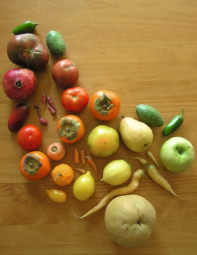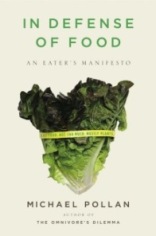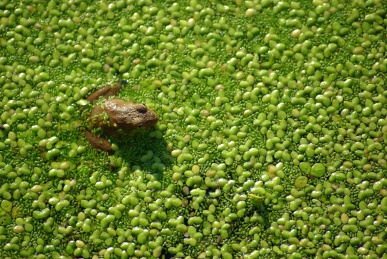 Photo credit: Claremont Farmers' Market 2006 by libraryman.
Photo credit: Claremont Farmers' Market 2006 by libraryman.
-------------------------------------------------
Yesterday, Planet Green's food-smart contributor, Kelly Rossiter, suggested we check out a new site to help us increase our intake of fruits and vegetables. It's the University of Michigan's Comprehensive Cancer Center's recipe collection where you can search for recipes based on preferences and dietary restrictions. Kelly has written an excellent description of the site so rather than paraphrase her words, I'll encourage you to read her post.
What I will do, though, is post about my experiences using the site's features. This morning I imagined myself using the recipe search tool in different scenarios. For example,
1. Counseling a patient/client with active cancer who is a vegan and needs a high protein diet. By entering the appropriate search terms (vegan, high protein), you will obtain these results: Boiled Lentils and Glazed Edamame Beans. OK, I admit "boiled lentils" do not sound that exciting but I really like the tip that is part of the recipe title, "add to soups and stews." As dietitians we often make suggestions on how to increase the protein-density of meals. Here is another option besides skim milk powder.
2. Responding to the comment "I'd like to eat more foods in-season, especially the dark, green leafy vegetables like kale, chard and mustard greens but I don't know how to prepare them so they taste good." You can either browse the index or, if there are dietary restriction, use the search tool to find recipes (all meeting the low-fat criterion) like Spaghetti with Mustard Greens and Italian Sausage, Southwest Swiss Chard and Bean Soup, Wilted Winter Salad, and Vegetale Posole (with kale).
Thank you, Kelly, for pointing out this new site. I've already found it personally and professionally useful.
Link: University of Michagan's Comprehensive Cancer Center's recipe collection.
 Tuesday, October 21, 2008
Tuesday, October 21, 2008 

